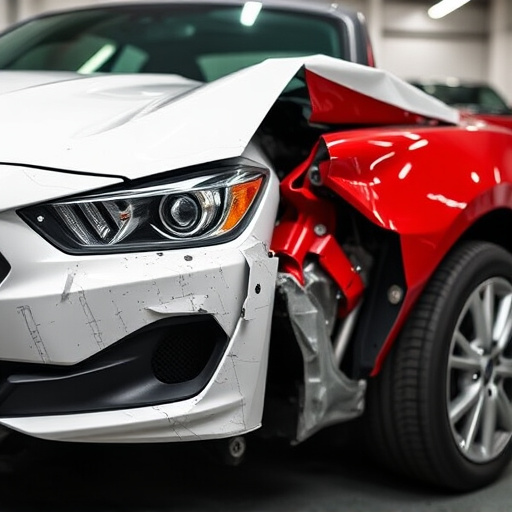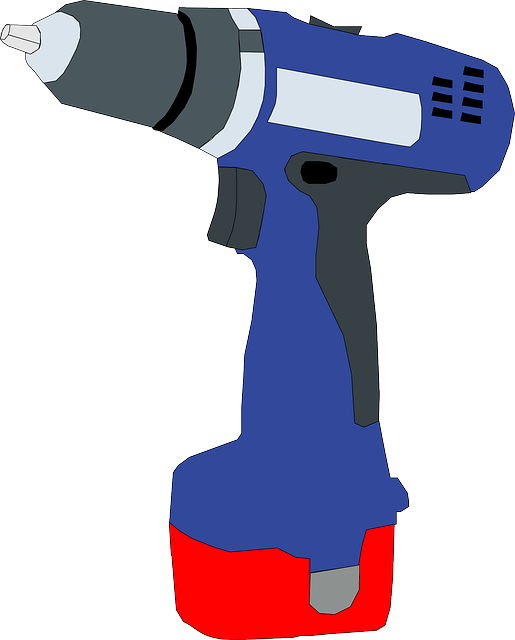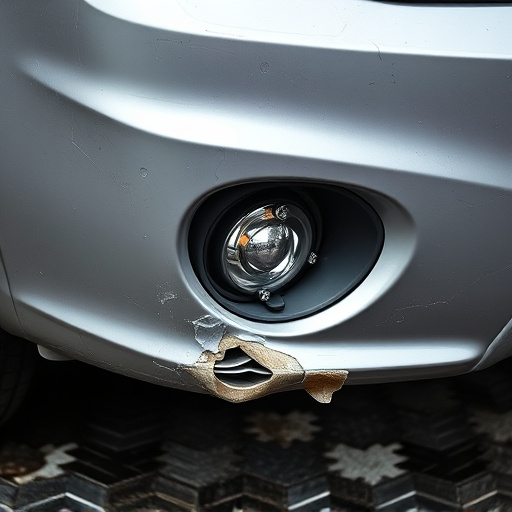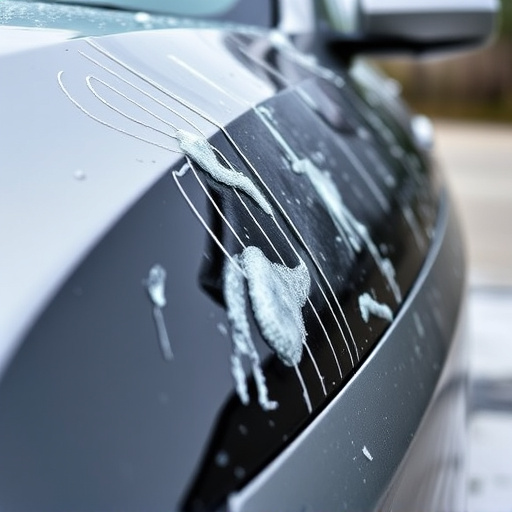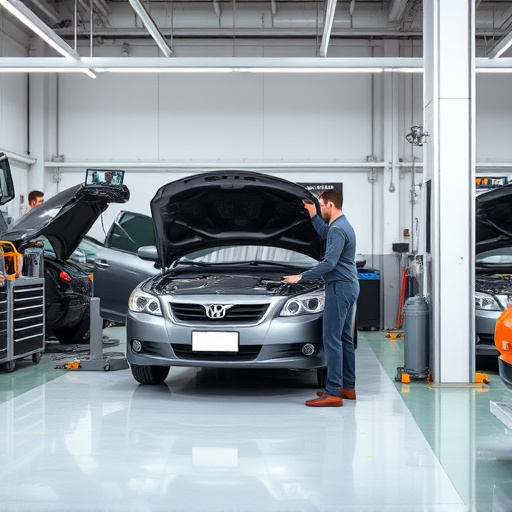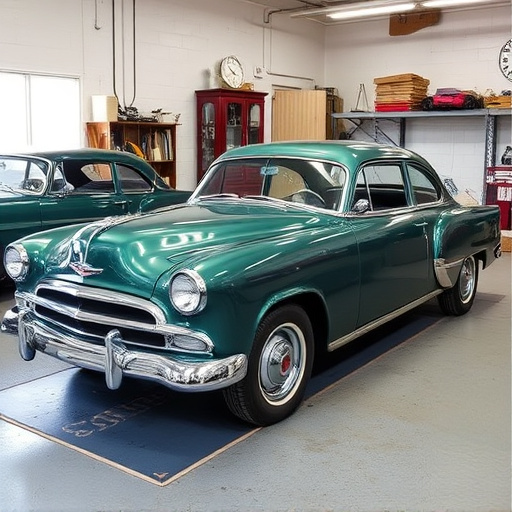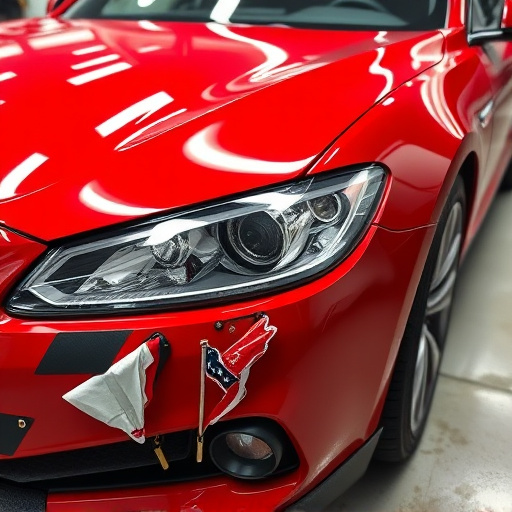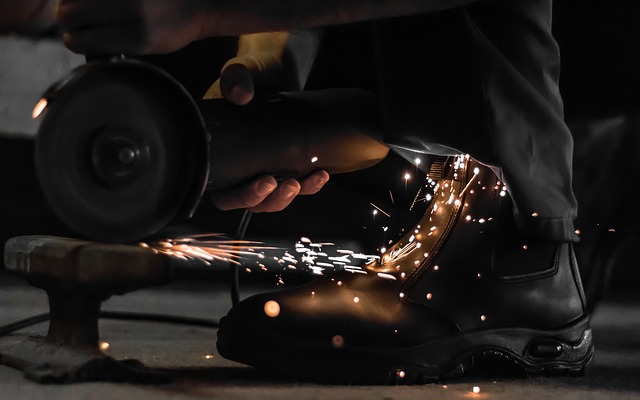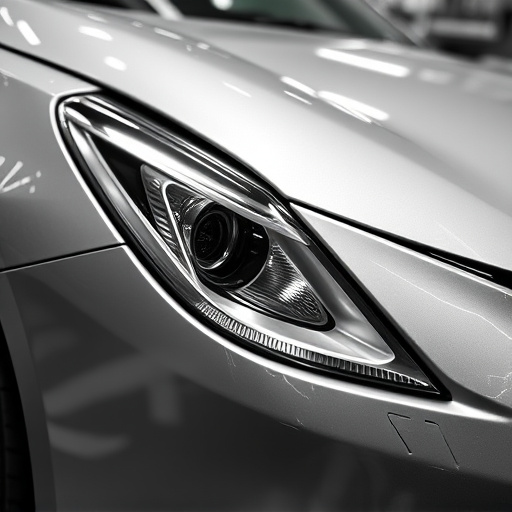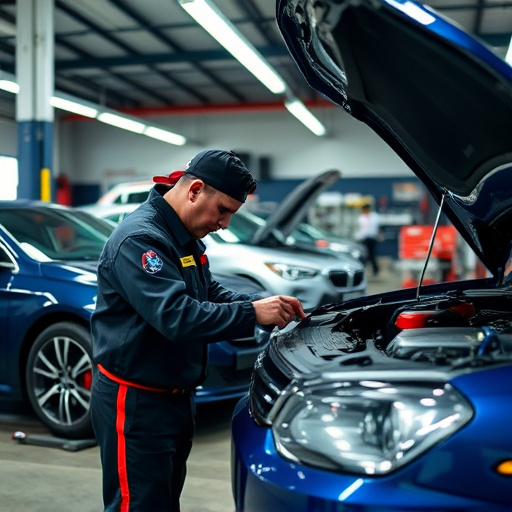Heat shields protect engines from extreme temps, preventing damage that can lead to reduced performance & safety risks. Regular inspections & timely heat shield replacement by reputable shops are crucial for engine longevity, fuel efficiency, & passenger safety, avoiding more serious issues.
Heat shield replacement is a critical aspect of engine maintenance that can’t be overlooked. Heat shields, crucial components that line an engine’s interior, protect against intense heat and prevent damage to other parts. Over time, these shields incur wear and tear, becoming vulnerable to cracks and degradation. Recognizing signs like blistering, warping, or unusual noises is essential. Ignored damage can lead to catastrophic failures, posing significant safety risks. Regular heat shield replacement ensures optimal engine performance and longevity.
- Heat Shields: A Vital Engine Component
- Signs Your Heat Shield Needs Replacement
- The Impact of Ignored Damage on Engine Safety
Heat Shields: A Vital Engine Component
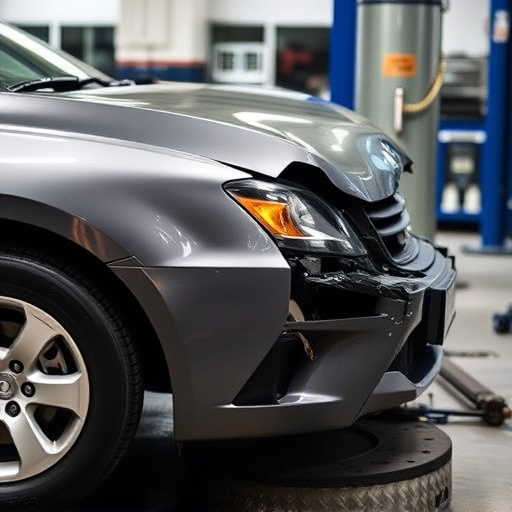
Heat shields are an often-overlooked yet critical component of an engine’s overall health and safety. These protective barriers are designed to withstand extreme temperatures, shielding sensitive parts from direct heat exposure. Over time, heat shields can become damaged due to various factors such as road debris, potholes, or even normal wear and tear. A cracked or broken heat shield is not just an aesthetic issue; it poses a significant risk to the engine’s performance and longevity.
When a heat shield is no longer effective, its replacement should be a top priority at a reliable collision repair center. Skilled technicians offer expert car bodywork services to ensure precise heat shield replacement, enhancing engine safety and preventing further damage. Unlike a simple car paint repair, this process demands specialized knowledge to maintain the engine’s optimal operating temperature, thereby ensuring the vehicle’s overall reliability and performance.
Signs Your Heat Shield Needs Replacement
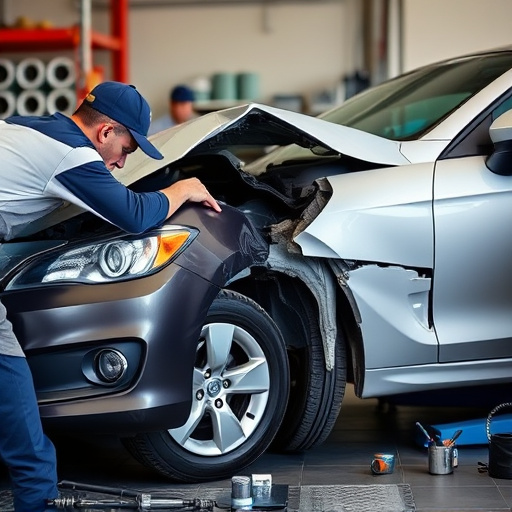
If your vehicle is showing signs of distress during operation, it might be time to consider a heat shield replacement. Over time, heat shields can become damaged or worn out due to exposure to extreme temperatures and road conditions. Cracks, holes, warping, or severe corrosion are clear indications that your heat shield is no longer effective. These issues not only compromise the safety of your engine but also lead to inefficient performance.
Regularly checking for these signs is crucial. A damaged heat shield can cause increased noise from the engine, unusual vibrations, and even reduced fuel efficiency. If you’re seeking reliable auto repair services or fleet repair services, looking out for these warning signs can help you find auto repair near me that offers quality solutions before more serious problems arise.
The Impact of Ignored Damage on Engine Safety
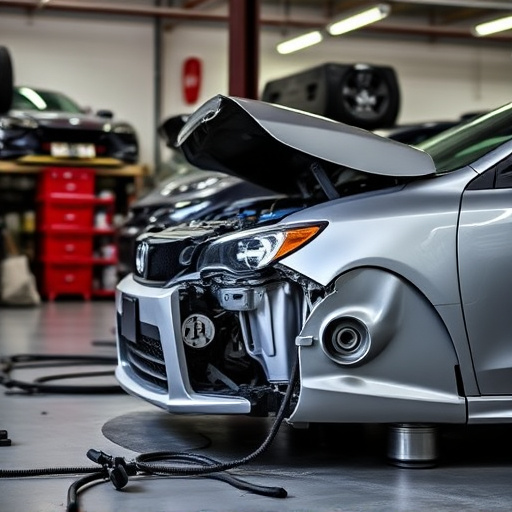
In many cases, heat shield damage goes unnoticed or is dismissed as insignificant, especially if it doesn’t immediately affect engine performance. However, ignoring even minor heat shield deterioration can have severe consequences for engine safety over time. Heat shields play a crucial role in protecting internal components from excessive heat, which could be caused by damaged, cracked, or worn-out heat shield materials. When these protective barriers fail, high-temperature gases and flames from the exhaust system can penetrate, posing significant risks to both the vehicle’s performance and the safety of its occupants.
Over time, neglected heat shield damage can lead to more substantial engine issues, including increased wear and tear on vital parts, reduced fuel efficiency, and even catastrophic failures. Regular inspections and timely heat shield replacement are essential in a reliable automotive body shop or collision damage repair center as part of their preventive maintenance services. By addressing heat shield concerns promptly, car body shops contribute not only to enhanced engine longevity but also to ensuring the safety and comfort of drivers and passengers alike.
Regularly inspecting and promptly replacing damaged heat shields is essential for maintaining engine safety. By addressing heat shield issues early, drivers can prevent more severe engine damage caused by excessive heat transfer. Don’t ignore signs of wear or tears; prompt action ensures optimal engine performance and longevity. Prioritize heat shield replacement as a crucial maintenance task to keep your vehicle’s powerplant healthy and safe.
